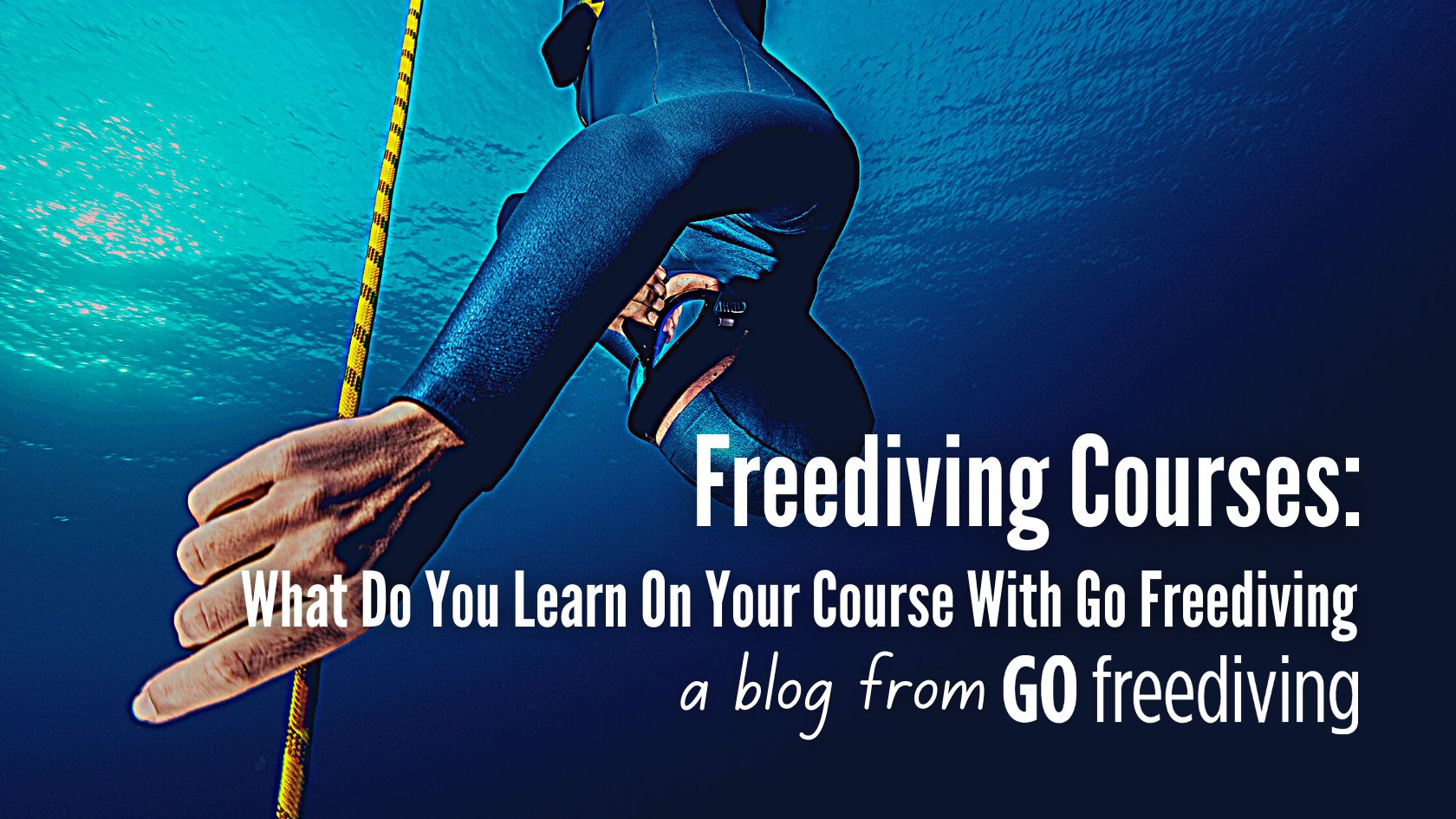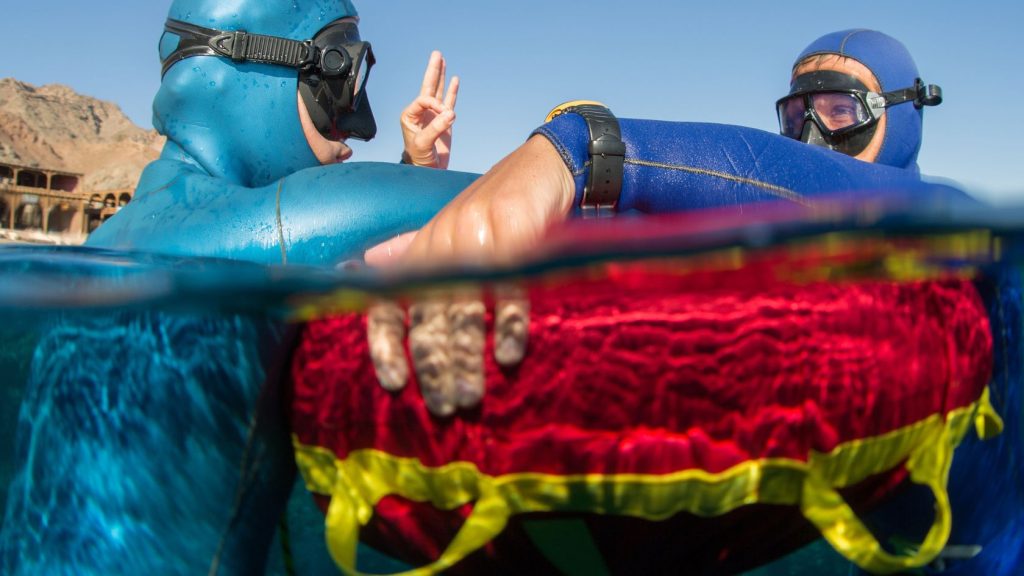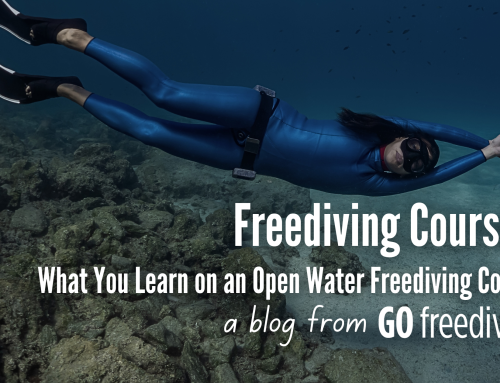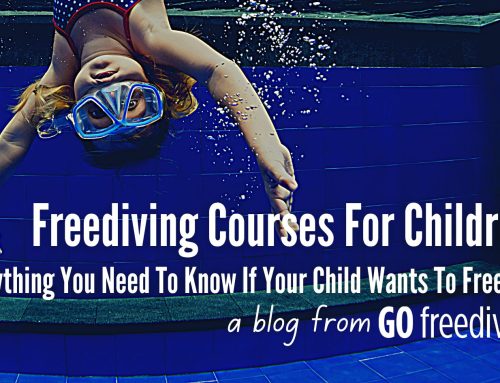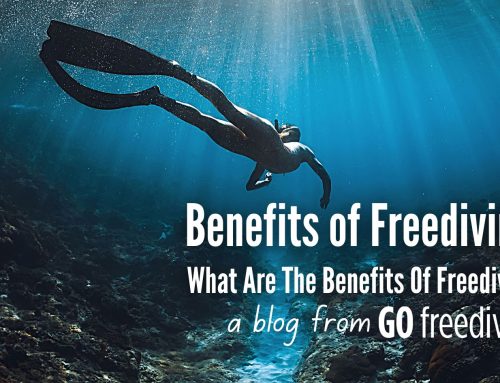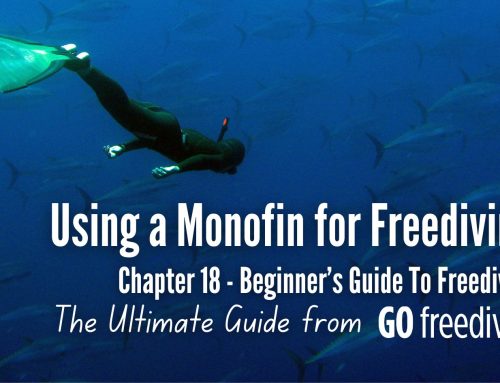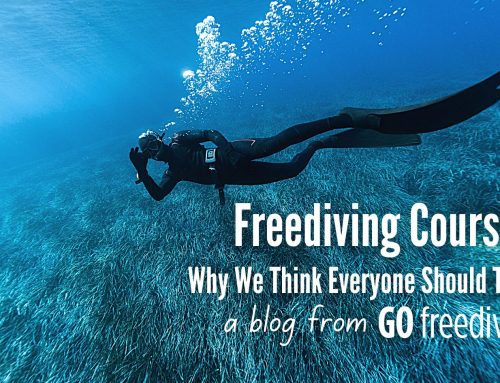When you sign up for a freediving course with Go Freediving, one question you might ask is ‘What freediving skills will I learn?’
The freediving skills and techniques we teach on our courses have been specifically selected to ensure a thorough, safe and enjoyable course can be experienced by everyone, regardless of previous experience, ability, age, confidence and any other miriad of variables our students may present to us.
At Go Freediving, we follow the RAID freediving course programme, which offers students a three tiered learning package – online theory, confined water and open water. We take a closer look at what the course programme involves and what is expected at each element of the course.

Freediving Skills – Online Theory
| Environment | Manual | Quick Quiz | |
| Physiology | Manual | Quick Quiz | |
| Rescue | Manual | Quick Quiz | |
| Management | Manual | Quick Quiz | |
| Confined water training | Manual | Quick Quiz | |
| Open water training | Manual | Quick Quiz |
These six elements form the foundation of the course, and come with a training manual for each section which can be downloaded and kept for future reference. At the end of each element there is a Quick Quiz to test knowledge and understanding. There is no time limit in order to absorb and test your understanding of the material. Learning and testing yourself in your own time is a far more relaxing way to progress through this portion of the course, and is excellent preparation for the practical elements ahead.
| FreediverExam | – | Knowledge check |
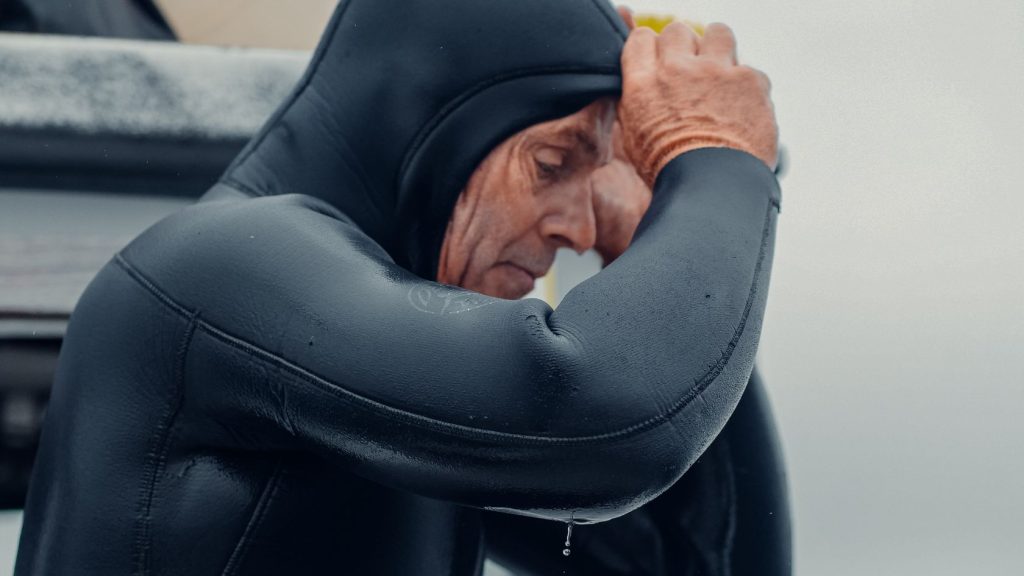
Confined Water
There are 12 freediving skills to master in order to successfully pass the confined water skills. Please be assured if you do not complete all of the confined water skills, you will still be part certified and be able to progress to the open water element in order to complete the freediving skills required in this final element. Your confined and open water skills are judged independently.
Students are expected to work through the skills as individuals or pairs performing skills ranging from getting into your wetsuit (there is a definite art to it!) and wearing your mask (special lessons for those with beards!), through to dive techniques and rescue scenarios.
Freediving Skills To Master in Confined Water | ||
|---|---|---|
| 1. Correct donning of freediving equipment Mastered preparation and donning of all freediving equipment including, Mask,snorkel,fins,weightbelt, exposure suit | ||
| 2. Swim test and water entry and exits Mastered correct entry and exit techniques and completed successful 200 mtr /660 ft swim test. | ||
| 3. Correct freediving buddy safety system mastered the buddy safety system for freediving by always Freediving with a buddy present & displaying the correct direct supervision techniques of the one up one down freediving code of conduct at all times. | ||
| 4. Correct weighting for dynamic freediving in confined water Mastered correct neutral buoyancy weighting for Dynamic Freediving skills. | ||
| 5. Perform core freediving skills correctly mastered the core skills of Freediving including proper breathing for freediving & avoiding incorrect habits such as hyperventilation, mastered proper finning and body position techniques and the correct use of mask and snorkel. | ||
| 6. Perform dolphin kick technique Mastered the dolphin kick technique for freediving with both feet together side by side | ||
| 7. Perform correct duckdive and equlisation technique mastered correct skills used in the process of the duck dive head first dive used to descend including Equalising the ears, sinus and mask. | ||
| 8. Perform dynamic bi fins to 30m or 100ft in confined water Mastered and performed Dynamic bi-fins freediving using correct Freediving techniques and conservative oxygen limit management ( EG: not pushing the limit) to a minimum of 30 mtrs / 100ft. | ||
| 9. Correct use of freediving buoy and rope Mastered the use of a Freediving Buoy as a surface marker & diver down flag attachment point, resting area, and guide rope attachment point. | ||
| 10. Perform a correct rescue scenario for dynamic Mastered rescue and safety skills for black out, loss of motor control due to Hypoxia, mastered rescue underwater & rescue on the surface using the Rescue response revive protocol during Dynamic Freediving skills. | ||
| 11. Perform cramp removal Mastered techniques used to relieve leg/foot cramps on a Buddy and on self. | ||
| 12. Perform the tired or injured diver tow technique mastered techniques for towing a tired buddy freediver by using a pushing technique and a pulling technique using head support incase of unconscious diver. |
Open Water
This is usually the favourite element of the course! Once our students have the opportunity to test their new freediving skills in an open water enviroment, we see rapid increases in confidence, relaxation and improvement. Many of the skills required for open water are building on freediving skills first practiced in the confined session with a few extra skills added.
Freediving Skills To Master in Open Water | ||
|---|---|---|
| 1. Correct donning of freediving equipment Mastered preparation and donning of all freediving equipment including, Mask,snorkel,fins,weightbelt, exposure suit, guage/computer | ||
| 2. Correct freediving buddy safety system mastered the buddy safety system for freediving by always Freediving with a buddy present & displaying the correct direct supervision techniques of the one up one down freediving code of conduct at all times | ||
| 3. Correct weighting for depth freediving in open water Mastered correct positive surface buoyancy weighting & at depth neutral to negative buoyancy weighting for depth Freediving skills | ||
| 4. Perform core freediving skills correctly mastered the core skills of Freediving including proper breathing for freediving & avoiding incorrect habits such as hyperventilation, mastered proper finning and body position techniques and the correct use of mask and snorkel & Equalisation of ears sinus and mask on descent | ||
| 5. Correct use of freediving buoy and rope Mastered the use of a Freediving Buoy as a surface marker & diver down flag attachment point, resting area, and guide rope attachment point | ||
| 6. Perform correct duckdive and equalisation technique Mastered correct skills used in the process of the duck dive head first dive used to descend including Frenzel Equalising the ears, sinus and mask | ||
| 7. Perform proper equalisation techniques on descent Mastered equalization of the ears sinus and mask regularly on descent without problem | ||
| 8. Perform freedive to a minimum of 10m or 33ft using bi fins Mastered freediving to a minimum depth of 10 mtrs / 33ft using correct safe freediving skills with bi-fins technique and proper turns at depth | ||
| 9. Perform a no fins ascent from a depth of 10m or 33ft minimum Mastered freediving ascent from a minimum depth of 10 mtrs / 33ft using correct no-fins (arms only) freediving skills to simulate leg cramps, remaining calm and in control | ||
| 10. Perform a mask off ascent from a minimum depth of 10m or 33 ft using bi fins Mastered freediving to a minimum depth of 10 mtrs / 33ft then ascending without mask using correct safe freediving skills with bi-fins technique, remaining calm and in control. | ||
| 11. Perform a correct SWB rescue scenario from 10m or 33ft mastered rescue and safety skills for Shallow water blackout, due to Hypoxia, mastered rescue from depth & subsequent rescue on the surface using the Rescue response revive protocol while remaining calm and in control using proper techniques | ||
| 12. Perform a correct SWB or LMC rescue scenario on the surface mastered rescue and safety skills for Shallow water blackout/LMC, due to Hypoxia, mastered subsequent rescue on the surface using the Rescue response revive protocol while remaining calm and in control using proper techniques | ||
| 13. All dives logged online All freedive sessions completed on the RAID WSF Freediver course are logged by the candidate on their RAID profile on the RAID website | ||
| 14. Student has met all the relevant prerequisites as detailed by RAID for this course. All requirements set by RAID for this course are understood and have been completed | ||
| 15. Perform cramp removal Mastered techniques used to relieve leg/foot cramps on a Buddy and on self. | ||
| 16. Perform the tired or injured diver tow technique mastered techniques for towing a tired buddy freediver by using a pushing technique and a pulling technique using head support incase of unconscious diver. | ||
| 17. Water entries and exits Mastered correct entry and exit techniques for open water freediving. | ||
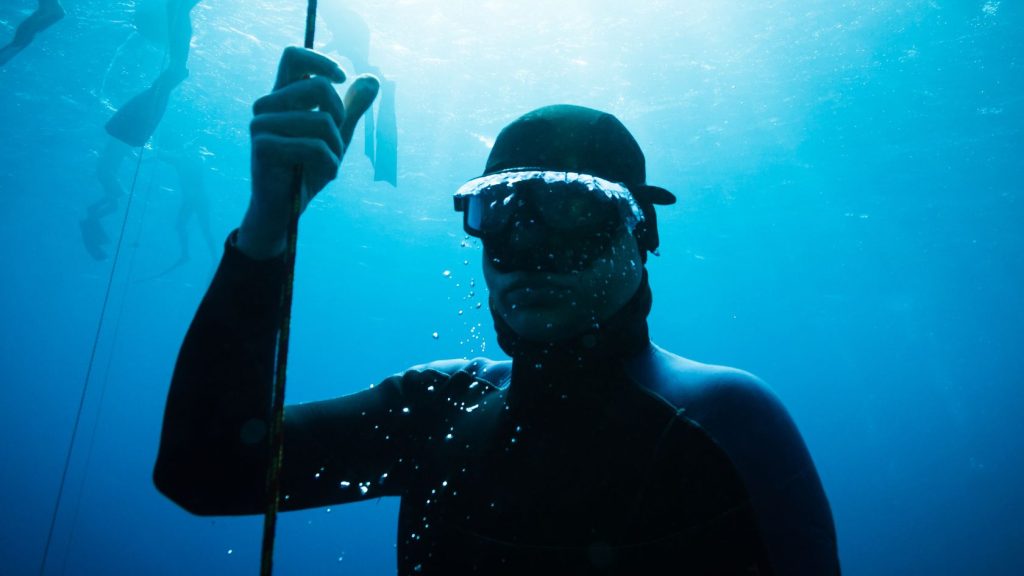
Once students have completed all elements of the course, they are able to enjoy their newfound underwater freedom and start exploring planes, platforms, marine life and anything else that grabs their attention!
Watching how quickly students progress during the two day course is immensely rewarding, regardless of whether those new freediving skills will be used in or out of the water (many students tell us how much the course also helps them out of the water with relaxation, anxiety, stress and other mental obstacles they face).
Want to learn all these freediving skills and more? Learn to freedive with Go Freediving
Go Freediving is the longest established, most experienced and friendliest freediving course provider in the UK, led by world class freediving instructor trainer Emma Farrell, and her team of personally trained instructors. No other course provider has such a good instructor to student ratio, safety record and personal touch.
Whether you’re a beginner dipping your toes into the world of freediving, a seasoned pro looking to turn professional, or simply a freediver of any level who wants the best freediving holiday in the world, we’re here for you!
Also check out our online guide, The Beginners Guide to Freediving by clicking here!
If you want to know what previous students thought of their course, visit our testimonials page here: Testimonials
Want more from Go Freediving?
Scroll to the bottom of our webpage where you can sign up to our newsletter, find the dates for all upcoming trips and courses, read even more blogs, or connect with us on social media!
See you in the water!
